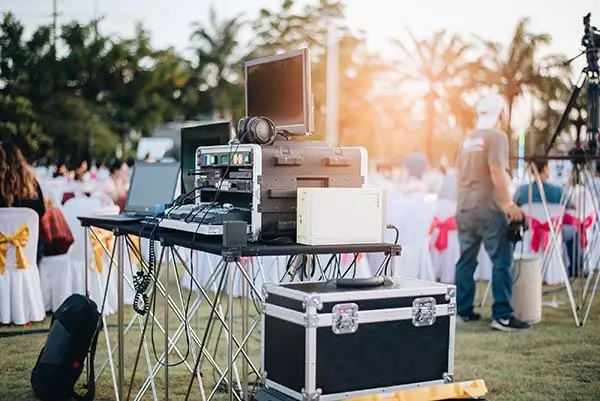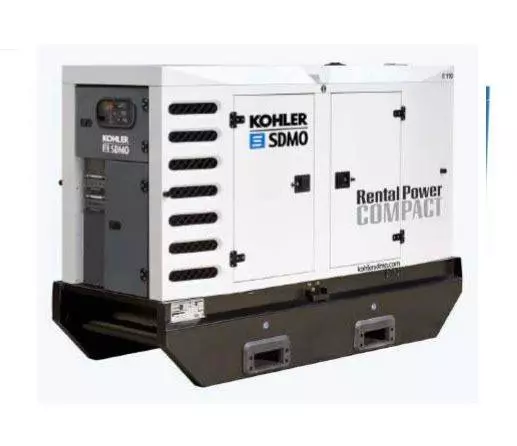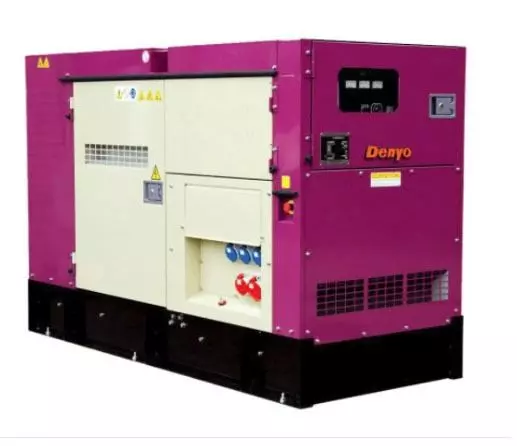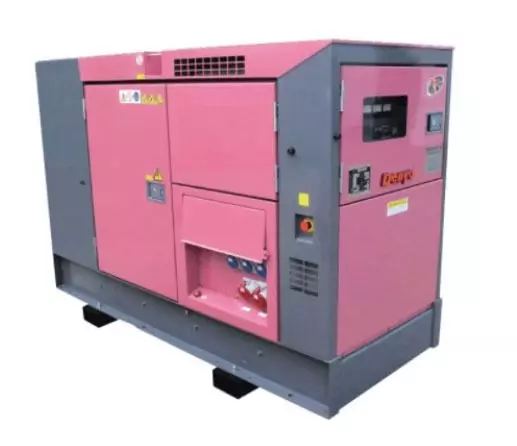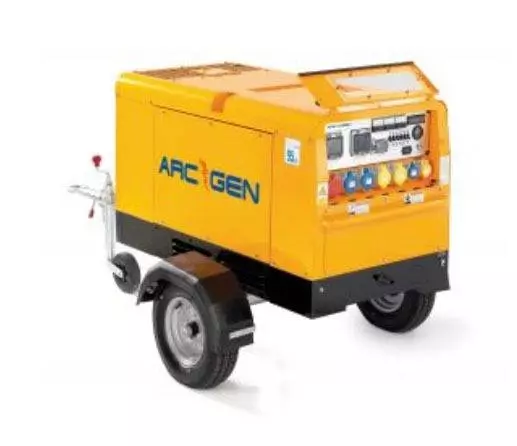A COMPLETE GUIDE TO EVENT PLANNING
Event Planning Checklist
"Do you want some help planning events?"
"Are you are new to the process of organising an event?"
"Do you need help establishing easy to follow processes for your employees while event planning?"
Here is a generic Event Checklist that lays out, in an easy to follow format, all of the details you will need to pay attention to. Not only that, but it also lays out the timeline in which all of these things will need to get done.
Begin Planning Early
You should begin your planning as soon as possible.
In general terms, your party planning process should begin no less than four to six months before your event is to occur. This can be fixed better when you have a date--so try to get a concrete date as soon as possible!
However, if you have been set this seemingly impossible and almost certainly last-minute task by your employers--don't panic!
Whether you have to organise an event for a charity, your company, or a club, if you calm yourself and work as hard as you can, you will be able to do it!
Think About Food
Food Preferences and Allergies: when there is an online option to buy tickets, you should ask attendees not only their food preferences but also their allergies so you can avoid any surprises that end with upset guests and/or guests who become seriously ill.
It's just good manners. You want to know what kinds of foods the attendees will want to eat--there is nothing more embarrassing than serving vegans a traditional BBQ meal.
Alcohol Licensing: this is extremely important--don't forget to apply for this if your event will be serving alcohol. You will need to apply to local authorities for a licence. It generally takes about five weeks for your application to process, so that should factor into your event planning schedule.
Food and Snacks for the Volunteers: Your volunteers are what make the entire event run smoothly, and they need more food than the people attending the event.
Wherever you get your catering done, you need to also account for your volunteers. Do you want your volunteers to know how much you appreciate them beyond that? Order them some snacks to munch on throughout the day.
Logistics
You should begin your planning as soon as possible.
Dollies and Hand Trucks: these are not the glamorous aspects of event planning, but hand trucks and dollies are extremely important and are needed to keep things running smoothly.
If you have either of these items, it can be not only a time saver but also cuts down on any back-related injuries. You can either buy these at an office supply store, home improvement store, or you can rent them.
Event Agenda Management: anything can happen right up until the event occurs e.g. a speaker change or session title change. It can be time-consuming and often forgotten to update these changes online, on brochures, or other media where the event is advertised.
If you have a central place, where this information can be updated and managed using technology on both web and mobile. You can also use this to build a conference webpage by using copy and paste.
However, if you decide to manually manage your agenda, make sure you have a conference planning checklist that states how often your agenda is updated, and how you will keep it consistent between the event web pages or app.
Power Supply: Is your event outdoors? Do you have access to the power supply of the venue? Will you need to provide a power supply for outdoor lighting, music systems or food preparation equipment?
It is essential that you have a grasp of how much electricity you will be using for your event. With this information you can arrange to hire adequate power supply.
A silent generator offers mobile power supply which is reliable and trouble free. Using a generator hire service opens up your event to outdoor opportunities such as marquee events or festivals.
The generators offered by Bristol Event Generators are available for weddings and events throughout Bristol and the surrounding areas.
Capacity: do you know how large the capacity of the room or venue you will be holding your event at?
This might seem like something small, but when you are looking at venues you should get a capacity so that you know how many tickets you can sell.
There are a lot of event planning apps that help you set capacity limits for different events by only letting a certain amount of attendees enter.
This reduces the chances of overcrowding and helps you manage enrolments. This particularly can be useful for paid or training sessions.
Music Permits: do you plan to play music with your smartphone hooked up to a speaker? While that may seem like a cheap and easy solution to the question of music during your event, it, unfortunately, is not legal.
If you buy songs from Pandora or iTunes, they are bought and licensed only for personal use--not a public event. You will have to buy a license to play music publicly.
If you are going to have musicians perform live music, you will need a permit before they can play at your event. Be careful--playing unlicensed music or performing without a permit isn't something that is taken lightly by ruling organisations.
If you get a license to play music, it is a good idea to take music requests from attendees through apps e.g. the Community Board.
Liability: Accidents happen--but you should be prepared for when they do. Maybe one of your attendees gets so caught up talking to someone else, that they don't see the chair that they trip over.
After making sure he is ok, he will need to sign a liability form for hazards. Make sure you comply with your venue procedures in this.
Name Badges: These are extremely important to use, as they facilitate making connections and networking. Do not ask attendees to write their own names, as it can not only be unreadable but is also unprofessional. You can use an online tool to make professional looking name badges in five minutes or less.
Don't forget to add QR codes and the attendees' interests or industries onto the badge as well. This will be useful in not only being able to check them in quickly but also for networking. If you use the event app, you can use the in house badge generator for free.
Day of Breakdown: There are two schedules for event planners--one that the attendees see, and one that only the even planning team sees. The one that the event planning team sees contains every little bit of information that is needed to make sure the entire event runs smoothly, both in front and behind the scenes.
Printed Master Sheet: This sheet contains important information, like contact information for all of the vendors, the WiFi password, and the event checklist.
This Master Sheet can be kept in Google Docs, Evernote, or the logistic section of the event app--however, you should have printed copies on hand as well.
Emergency / First Aid Kit: Accidents happen, and it is best to be prepared for this. It is exceedingly less stressful if you have a few extra pairs of scissors or tape than to be without. Depending on your event (e.g. a wedding or just a work event), the following checklist could be different, but in general, these things are good to have:
- Scissors
- Pens
- Pencils
- Tape
- Notebook/loose sheets of paper
- Ibuprofen
- Clorox pen
- First aid kit
Communication with Speakers: It can be tough to keep your speakers, their sessions/biography information, and coordinating their trips together. This process should be automated as much as possible.
You should have your speakers, for example, upload their information through a speaker webpage portal themselves.
This cuts down any emailing that has to happen. However, before the event, you should make sure that the speaker's bio, name, and session abstracts are not only uploaded correctly with no errors but are also in the right space. This important step should be listed in the conference planning checklist.
Communication with Attendees: Attendees should be engaged and fully aware and updated of any changes made to the event. Think outside of the usual ways you can communicate this information to attendees.
For example, are you using an event app? This can be extremely useful as it puts all of the information in one place, and you can also speak directly to the attendees, increase their participation, and give the event instant updates.
It takes time and money to get used to using an event app, and using one for this purpose can increase your engagement from 30% to 90%. Use the following tips to increase engagement.
Does your app support a community board? Use it to post such questions like 'Recommend your favourite local restaurant' or 'Which session are you looking forward to attending the most?'
You can also use a social wall if your venue has a giant screen or projector. Use the event app to send instant updates to this wall for announcements, upcoming sessions, and photos.
Create a game, like a photo contest, to increase engagement. Encourage everyone attending or speaking at the event to share pictures, news articles, etc through the event app, so that there is increased engagement in the event, even before the event starts.
Communication with Sponsors and Exhibitors: If you take the time to promote their companies, your sponsors and exhibitors will be grateful and easier to work with.
It is now very easy to provide QR scanning through an event app, and you can also let them set up profiles and engage the attendees via offering mobile coupons, raffles, and giveaways on the event app.
Do not forget to give the sponsors a detailed guide on how to use whichever communication tool or app you decide to use before the event.
Communication with Volunteers: If you are going to have volunteers check-in attendees or generate badges, then they will need access to the proper information to do so.
Create a group chat on the event app so you can instantly communicate with your volunteers, and be able to answer their questions.
If you need more volunteers, post an announcement on social media or on the Community Board on your event app. Some attendees may want to help, especially if they get a discounted price or some other perk.
Internal Communication: Make sure everyone on your team uses the same form of internal communication e.g. walkie talkies, cell phones, or the private group chat.
At least a day before the event occurs, make sure you do a test run and make sure everyone can communicate properly. Then go over the event planning checklist, even your remote workers.
Digital Connections
WiFi Password: While this may not seem very important, having the WiFi available to attendees is very important. Make sure you have the WiFi password from the venue coordinator a few days before the event and have it on hand to share.
Charging Stations: Consider setting up charging stations for dying cell phone batteries. This is helpful to your event, because when attendees have fully charged batteries, then they can post more to the event app and increase engagement and interest overall.
Announcing Hashtags and the Event App: If you want engaged, digitally connected attendees, you will need to create an event hashtag. Have the MC tell everyone what the hashtag is, to ensure widespread usage.
Make sure you plan other guidelines to coincide with the hashtag e.g. accessing the event app and taking part in a poll or other announcement..
Wrap up
Survey Your Attendees: don't forget to survey your attendees on the last day of the event. Use a mobile survey or an event app to encourage attendees to fill out the survey after lunch, while their experiences are still fresh in their minds. Download survey questions to use for your next event, to save time.
De-Brief: Schedule a meeting with your core team and discuss and review the entirety of the event. Review the data you collected from the survey, social media, word of mouth, and what you witnessed to make your honest determinations on what went well, what could be improved. This is an especially important part of your event planning checklist, so don't forget to do it.
Share the Recap with Sponsors: Now, this step is usually forgotten or not even considered in the first place. A great way to foster long-standing relationships with your sponsors is to share a recap with them. The recap could include the number of attendees, popular social media posts, relevant information from the survey, and any other information that would delight them to see.
Armed with this event planning checklist, you can tackle your next event with confidence and ease! It includes extra checklist items this article doesn't cover: essential items to boost attendees' participations, get more feedback from attendees, and increase your event app adoption rate over 70-95%.
If you are planning an outdoor event, you will want to consider the power to keep the event running. Follow the link below for event generator hire in Bristol, Gloucestershire, Swindon, Bath and Cardiff.

